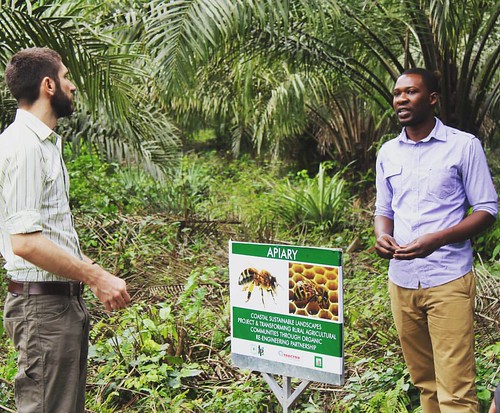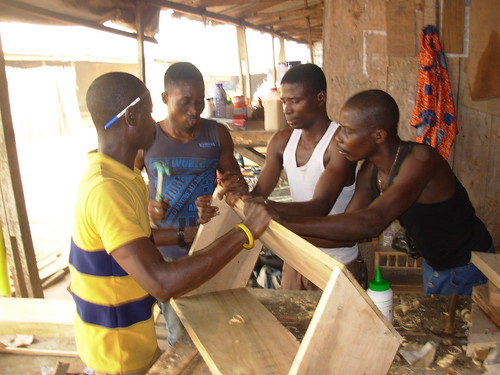
All over the world, deforestation and forest degradation are under the microscope because together they comprise the second greatest driver of climate change. If you focus on the country of Ghana, you’ll find one of the highest deforestation rates in Africa.
In fact, the country has lost nearly 90 percent of its original forests. The losses are due to a variety of factors including wood extraction and agricultural expansion. The remaining forests are home to forest elephants, Diana monkeys and many types of rare, endemic amphibians—and many rural communities that often struggle to support their families.
One activity, centered on beehive construction, is an example of how deforestation in Ghana can be lessened. Local carpenters were trained to build beehives providing livelihood opportunities for carpenters as well as for the farmers who will manage the hives. The hope is that farmers can eat the honey they produce or sell it at local markets for income.
The larger environmental benefit comes from the farmers who change their practices because they see the potential value of maintaining an apiary. When they set up hives in the forest, the farmers forego cutting and burning of the forest necessary to grow crops.
It’s a win-win when farmers can avoid forest degradation or deforestation because they have options that generate more income and provide an additional food source.
Increasing tree cover, improving livelihoods and increasing awareness of climate change throughout Ghana are the focus of the Coastal Sustainable Landscapes Project in the Western Region of Ghana. The project is managed by U.S. Forest Service International Programs. With funding from the U.S. Agency for International Development in collaboration with Government of Ghana counterparts and private and non-profit partners, the project has had big impacts.
Seventeen local communities have worked side by side with U.S. Forest Service staff. Results include the distribution of more than 50,000 tree seedlings to support forest health, biodiversity and carbon sequestration. In addition, Forest Service assistance has supported the creation of 17 village savings and loan associations to support local economic development and improved livelihoods while promoting improved natural resource management practices.




